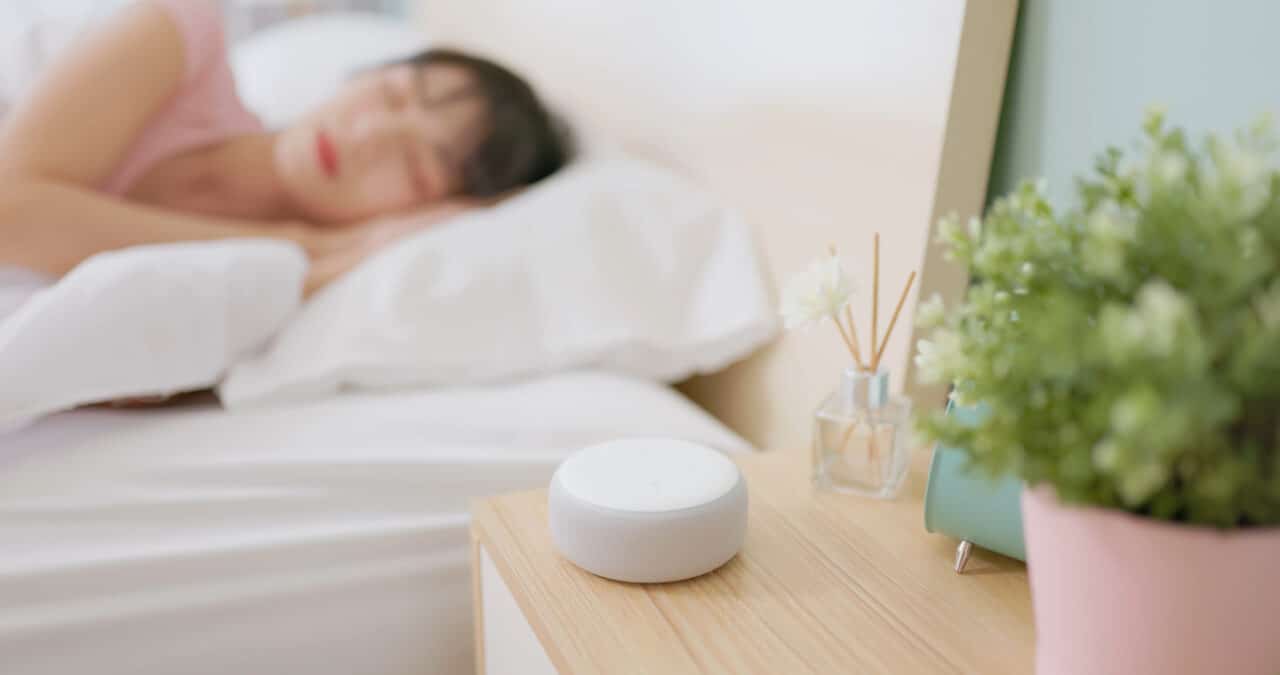Noise-induced hearing loss (NIHL) is caused by exposure to loud sounds over an extended period. The inner ear has sensitive hair cells that can be damaged when exposed to high noise levels, which results in permanent hearing loss.
Research suggests that sound machines, often used to help infants sleep, may contribute to this risk if not properly managed. Here’s what you need to know.
The Mechanics of Noise-Induced Hearing Loss

Hearing damage can start when sound levels exceed 85 dB, with the risk increasing as volume levels rise and exposure time lengthens. Inside the ear, the cochlea contains hair cells that transmit sound signals to the brain. High volumes can damage these cells, leading to irreversible hearing loss.
Everyday sounds can be sources of harmful noise, including:
- Listening to music through earbuds or headphones at a high volume.
- The use of loud power tools, such as lawnmowers or leaf blowers.
- Attendance at noisy events like sports games or concerts, particularly at venues like The Loft.
Are Sound Machines Safe for Babies?
Sound machines are widely used to soothe babies to sleep, but it’s essential to use them safely. These devices can reach noise levels over 50 dB, and if placed too close to the crib, they can exceed 85 dB, potentially damaging an infant’s developing ears.
To minimize hearing risks, follow these guidelines:
- Keep the sound machine at least seven feet away from your baby’s crib.
- Set the machine at the lowest effective volume and opt for a model with adjustable volume settings.
- Use a timer to ensure the machine turns off after a certain period, aiming for less than eight hours of continuous use if possible.
By taking precautions, you can ensure that your baby benefits from a calming sleep environment without the risk of long-term hearing damage.
If you have concerns about hearing health for your child or anyone else, consider reaching out to a hearing specialist.
Remember that newborns are typically screened for hearing loss shortly after birth. However, if concerns arise later, don’t hesitate to schedule a hearing evaluation with Advanced Hearing.


